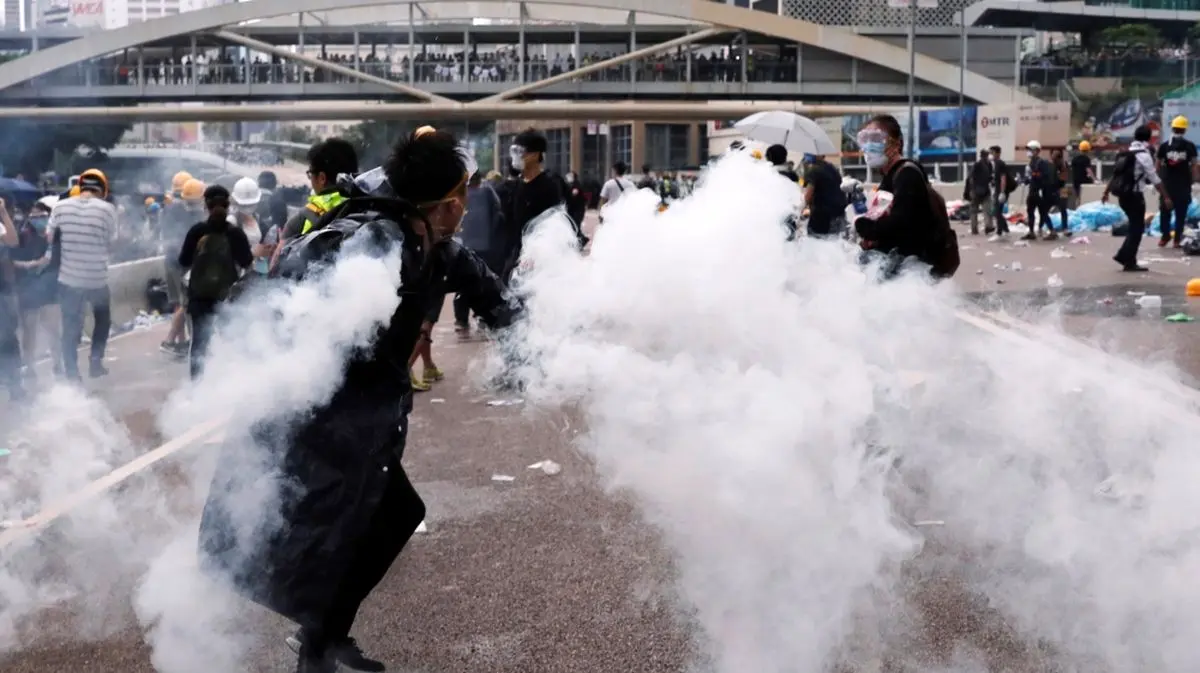Hong Kong shuts government offices due to mass protests

The authorities in Hong Kong on Thursday closed government offices in the heart of the city after mass protests against a controversial extradition bill that would allow extradition of people to the Chinese mainland.
The embattled leader of the semi-autonomous Chinese territory has described the protests as politically motivated "riots" and condemned protesters who resorted to "dangerous and life-threatening acts."
Chief Executive Carrie Lam has defended the highly controversial bill, insisting the legal changes were crucial to the territory's future.
Outside the Legislative Council and main government building where police used rubber bullets, tear gas and pepper spray into the night against the protesters on Wednesday, barricades were being removed and rubbish cleared. Heavy rain kept many away.
Al Jazeera's Sarah Clarke, reporting from Hong Kong, said the police had pushed the crowd to the neighbouring Central district before people finally went home at around 2am local time (18:00GMT).
"The streets are clear (and) the clean-up is under way," she said. "We are starting to see traffic resume on these roads that were paralysed for most of Wednesday."
Thousands of people surrounded Legco [the legislative building] on Wednesday morning ahead of a scheduled second debate on the extradition bill.
Critics fear the amendments will undermine Hong Kong's judicial independence and further erode the freedoms guaranteed to the city under the 'one country two systems' when it was returned to China by the British in 1997.
The protests followed a march on Sunday that brought an estimated one million people onto the streets.
Debate postponed
The demonstrations forced the debate to be postponed to an unspecified date, but the mood turned ugly when some of the crowd tried to get through the barricades and into the building.
Lam has said she wants the bill passed before the assembly is dissolved for the summer break at the end of the month. It is not clear when it will next be tabled.
The Chief Executive said the protests were "organised riots," and in an emotional television interview rejected accusations that she was betraying Hong Kong by pushing ahead with the proposals in defiance of public opinion.
Hong Kong protests
Police close a barrier surrounding the Legislative Council building [Thomas Peter/Reuters]
"I would not do anything that is not in the interests of Hong Kong," she said, stressing again that she was committed to the revised extradition bill.
"I will not shy away from my responsibilities. Sometimes as a political leader you cannot shy away from difficult decisions."
On Monday, the US Department of State, said that Washington was concerned the proposals would damage Hong Kong's business environment "and subject our citizens residing in or visiting Hong Kong to China's capricious judicial system".
But President Donald Trump appeared to take a cautious line when he was asked about the protests.
"That was as big a demonstration as I've ever seen," he said. "I hope that it all works out for China and Hong Kong."
But House Speaker Nancy Pelosi, expressing support for the protesters, said the US might have to "reassess" Hong Kong's semi-autonomous status if the bill were passed, putting the territory's preferential ties with the world's biggest economy at risk.
END
